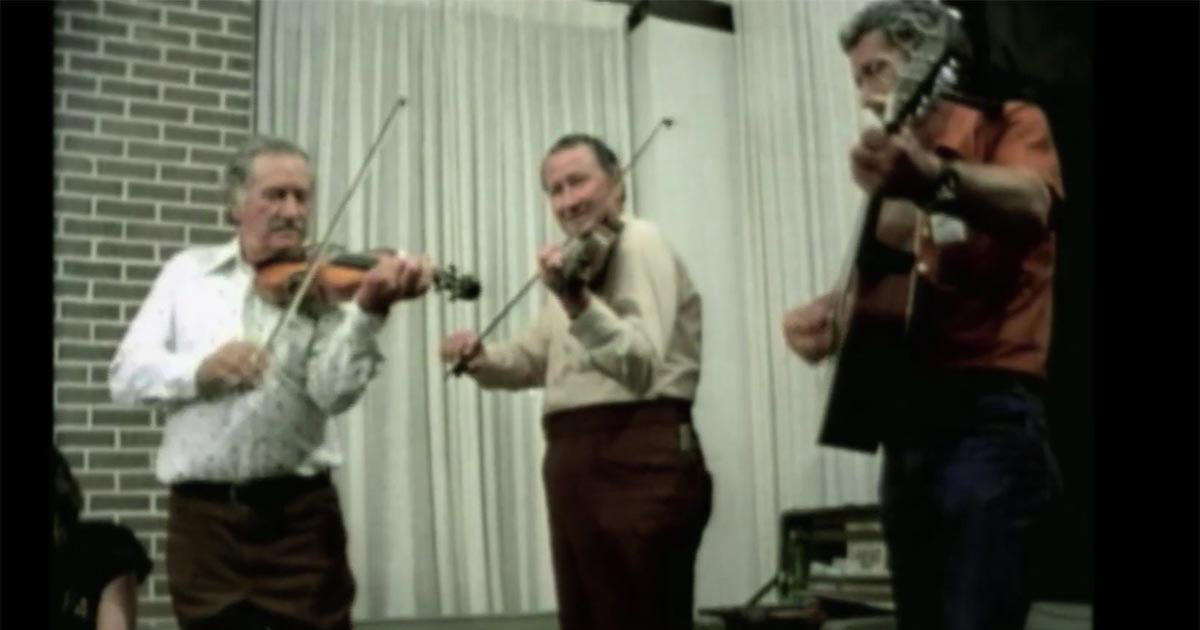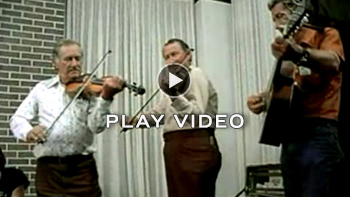
Dewey Balfa
An impassioned ambassador for Cajun culture, Dewey Balfa (1927-92) was a driving force in the revival of traditional Cajun music. Together with his brothers Will and Rodney, and later his nephew Tony and daughter Christine, Dewey brought the Cajun sound to countless people around the world and inspired generations of Cajun people with a deep and abiding pride in their cultural heritage. As a frequent participant in the Folklife Festival, he also became a spokesman of sorts for it, articulating its role in aiding the cause of cultural democracy.
Born in Grand Louis, Louisiana, Dewey was one of nine children. His father Charles, a sharecropper, was a major influence in his life, sharing his love for the old Cajun songs and music with his children at a time when the Cajun language and traditions were looked down upon. Dewey’s strong sense of tradition was based on a deep musical heritage going back generations in his family. “My father, grandfather, great-grandfather, they all played the fiddle, and, you see, through my music, I feel they are still alive.” Inspired by his father, Dewey grew up making music in the context of his home and community, playing for family gatherings and local dances.
In 1964, Ralph Rinzler invited Dewey and other Cajun musicians to perform at the Newport Folk Festival. To their amazement, an audience of seventeen thousand stood and cheered their music. In 1965, Dewey and his brothers Will and Rodney officially formed the Balfa Brothers Band and returned to the Newport Folk Festival in 1967 to another tremendous response. Dewey’s experiences in Newport motivated him to become an advocate for Cajun culture. He went home with a mission: to reawaken and foster pride in Cajun culture—or, as he said, and has often been reported by Rinzler and Smithsonian Festival staff over the years, “I wanted to take that applause back home with me.”
Dewey spoke out at festivals and concerts, in schools and on the radio. He worked closely with the Council for the Development of French in Louisiana to increase studies of the French language in the state’s schools; he helped to launch the Tribute to Cajun Music Festival in Louisiana; he participated numerous times in the Smithsonian Folklife Festival and in scores of other festivals and public events across the nation and the world, bringing Cajun music and his love for Cajun traditions to millions of people. He recorded on a variety of labels, including three albums for Folkways Records, one of which is an instructional album on playing the Cajun fiddle. In 1982, Dewey was awarded a National Heritage Fellowship by the National Endowment for the Arts, the nation’s highest award for excellence and achievement in the traditional arts.
As an unofficial spokesman for the Smithsonian Folklife Festival, Dewey talked and performed on radio shows and in film documentaries, serving up poignant insights in his own homegrown, stylish, and articulate way. Speaking about a program that brought French fiddlers to the Mall from France, Canada, Louisiana, and New England, he thought himself, and others, so fortunate to be able to experience and share their music together, in one place at one time. His reflections on the Festival’s work captured a sense of the event’s purpose and were often quoted in publications. “You should be proud of your nationality. You should be proud of your region. I want to respect your culture; you respect my culture. And if we ever learn to do this, America is a beautiful country, but it would even be more beautiful. And we can do that.”
Through his music, Dewey worked tirelessly to preserve his own culture and also model respect for others. A kind, gentle, and loving person, a virtuoso fiddler and vocalist, a dedicated teacher and eloquent spokesman, he was a great champion of cultural equity.



